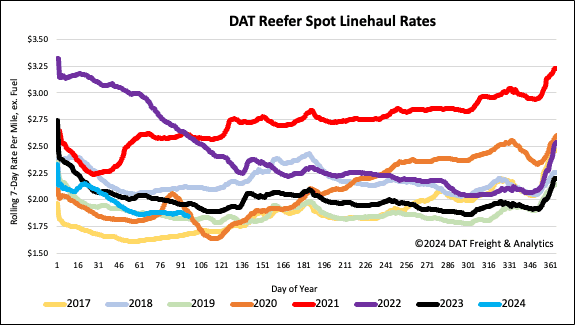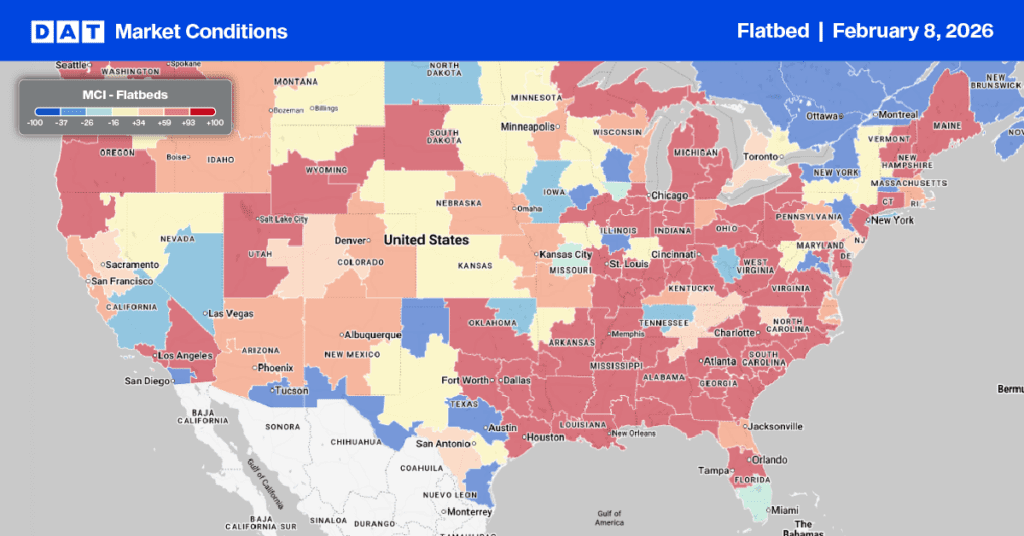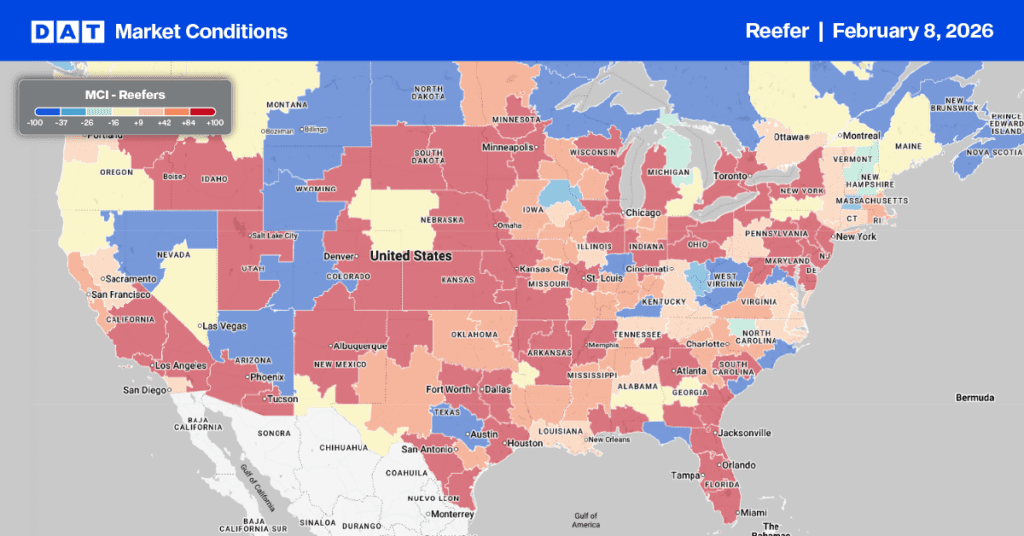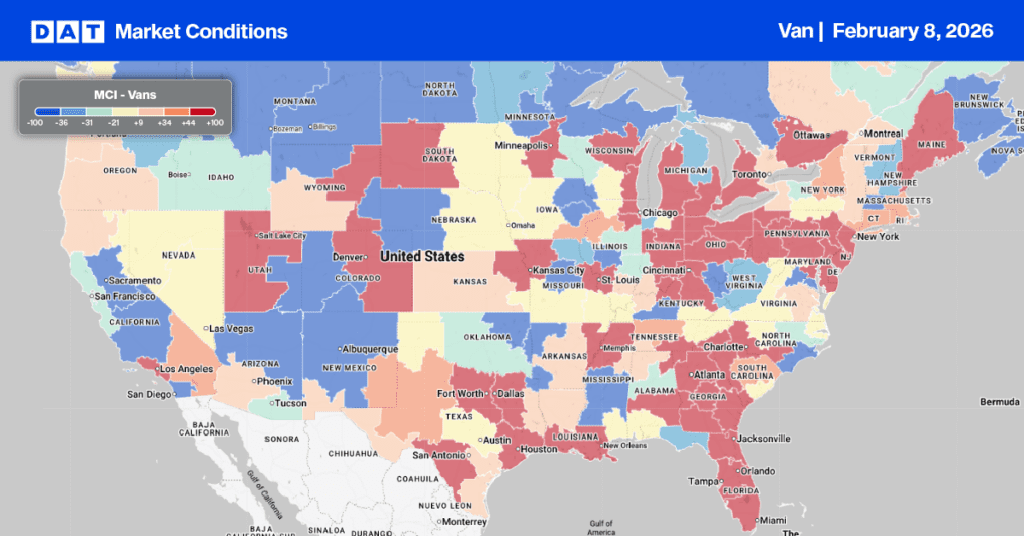Peach trees are blossoming, and strawberries are ready to pick, according to Lee Dickey from Dickey Farms in Musella, GA, indicating we are not too far from the official starting line of the 2024 produce season. Dickey says, “We are getting excited for strawberry season, although we’ve got some hurdles ahead of us with some really cold temperatures. We’ve had frost blankets on, which have worked judging by the size and sweetness of early-season strawberries.”
Get the clearest, most accurate view of the truckload marketplace with data from DAT iQ.
Tune into DAT iQ Live, live on YouTube or LinkedIn, 10am ET every Tuesday.
Dickey Farms has been growing produce in Georgia’s heartland for over 125 years and is proud to be home to Georgia’s oldest, continuously operating peach packinghouse. In the early days of Dickey Farms, mules were used to plow the orchards and to transport peaches to the packinghouse. At that time, most of the work was done manually, including Georgia’s first brushing machine to remove the peach fuzz. Dickey Farms founder Robert L. “Mr. Bob” Dickey was also one of the first producers to include a hydro-cooling system that places peaches in 35-degree water to remove field dust and slow the ripening process, making them perfect when reaching the northern markets.
Market watch
All rates cited below exclude fuel surcharges unless otherwise noted.
Outbound Atlanta reefer capacity was tighter following last week’s $0.04/mile increase to $2.03/mile in the most significant distribution market on the East Coast. Loads moved were down 12% w/w and are 14% lower than last year. On the number one outbound lane to Lakeland, FL, capacity loosened on a 3% lower volume of loads moved; linehaul rates were down $0.02/mile to $2.77/mile. Outbound Florida reefer rates dropped by $0.03/mile to $1.41/mile last week, impacted by a soft produce season where, according to the USDA, truckload volumes are 41% lower following last week’s 21% w/w decrease.
After a slow start, outbound produce volumes in California are improving, following last week’s 17% increase. In Fresno, the largest truckload produce market in the state, outbound reefer rates increased by $0.03/mile to $2.05/mile on a 2% higher volume of loads moved. Most of the gains were reported on the regional lane to Ontario, where rates increased by $0.11/mile to $2.46/mile on a 1% higher volume. In contrast, loads from Fresno to Phoenix paid carriers an average of $1.94/mile, down $0.02/mile on an 18% lower volume.
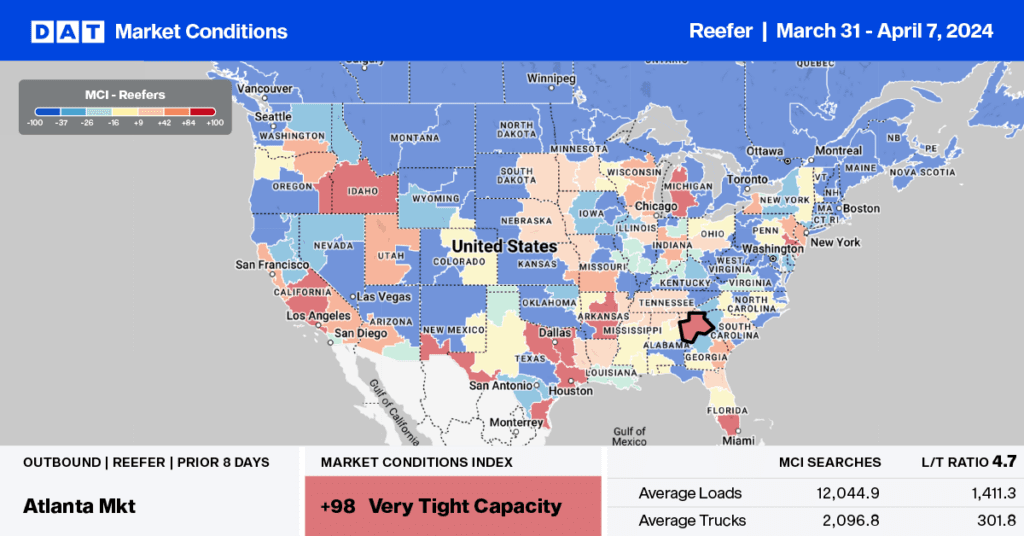
Load-to-Truck Ratio
Reefer load post volume decreased following last week’s 18% drop, impacted by a 4% w/w decrease in truckload produce volume, according to the latest USDA data. We’re at the start of the produce season, and compared to this time last year, our current produce volumes are around 8% lower. Available capacity decreased following last week’s 8% decrease in equipment posts, decreasing the load-to-truck ratio by 12% to 4.70.
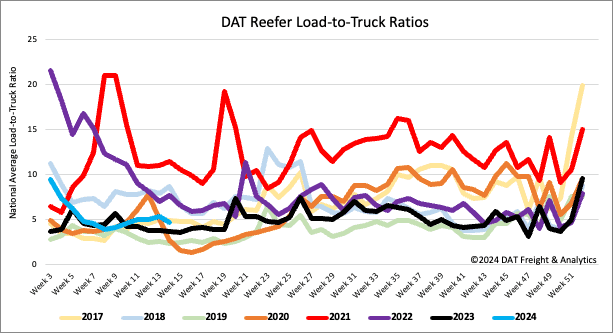
Spot rates
Reefer spot rates remained flat last week, averaging $1.87/mile, even though the national volume of loads moved dropped by just over 12%. Reefer linehaul rates are $0.12/mile lower and $0.02/mile higher than in 2019.
